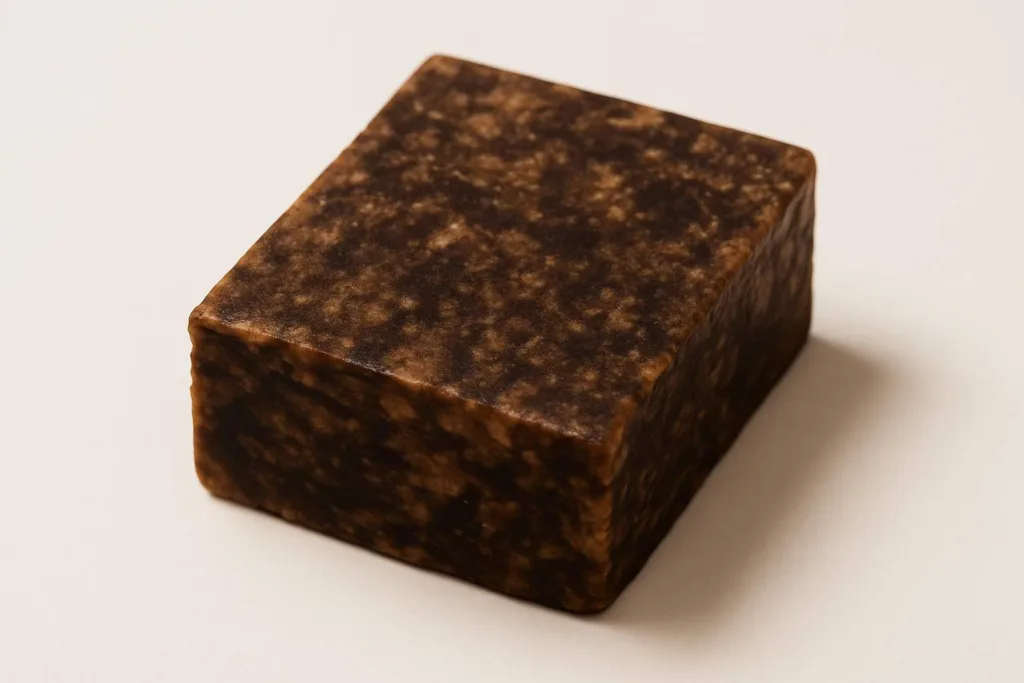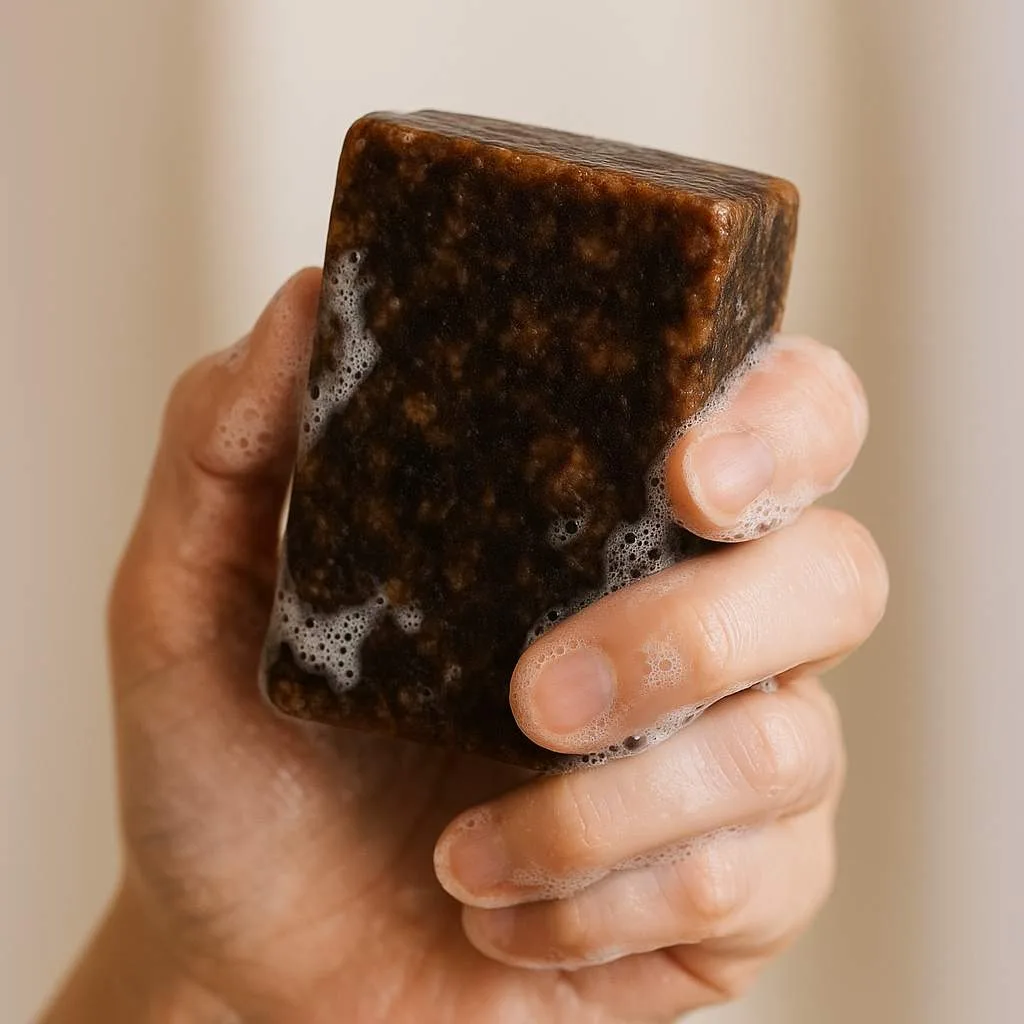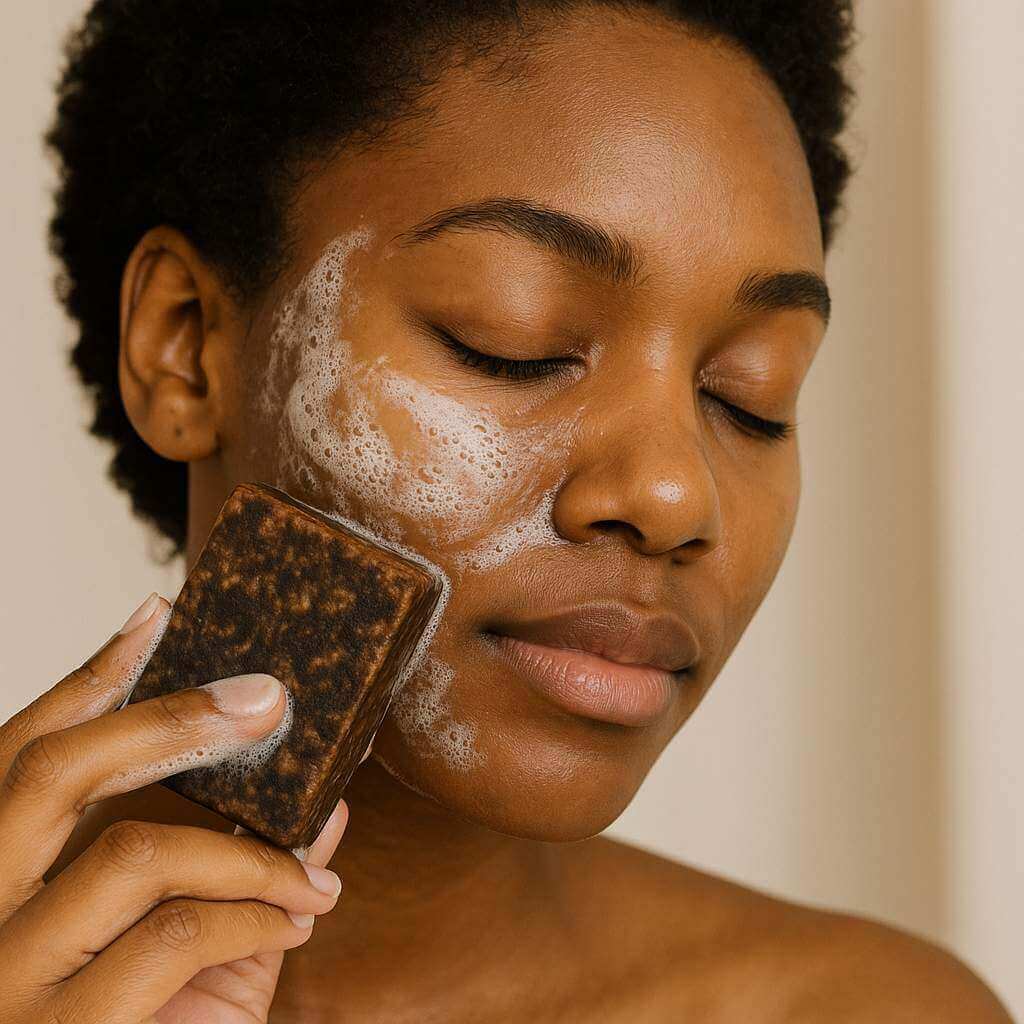In recent years, the skincare world has seen a shift toward natural alternatives, with many acne sufferers ditching harsh chemicals in favor of time-tested remedies. Among these, African Black Soap has emerged as a popular choice, praised for its ability to clear breakouts without the irritation often caused by traditional treatments. But how does African Black Soap for Acne stack up against salicylic acid—the gold standard in over-the-counter acne care?
This question isn’t just about preference; it’s about finding a solution that works effectively without compromising skin health. For those with sensitive skin, the redness and peeling from salicylic acid can be as frustrating as the acne itself. Meanwhile, African Black Soap promises a gentler approach, leveraging natural ingredients to fight bacteria, reduce oil, and soothe inflammation. Those curious about this shift can explore Why more people are switching to African Black Soap for acne treatment to understand the growing appeal.

What Is African Black Soap and How Does It Work?
African Black Soap—a staple in West African skincare for centuries—originates from countries like Ghana, Nigeria, and Senegal. Traditionally crafted by hand, it’s made from a blend of roasted plantain skins, cocoa pods, shea butter, palm kernel oil, and water. The “black” in its name comes from the roasted plantains and cocoa pods, which give it a deep, earthy hue and a rich, natural scent.
Unlike commercial soaps loaded with sulfates and synthetic fragrances, African Black Soap works in harmony with the skin. Its key mechanisms for fighting acne include:
- Antibacterial properties: Compounds from cocoa pods and palm kernel oil target Propionibacterium acnes, the bacteria that causes acne inflammation.
- Gentle exfoliation: Enzymes from plantain skins dissolve dead skin cells, unclogging pores without the harsh scrubbing that can irritate acne-prone skin.
- Oil regulation: Shea butter and palm kernel oil balance sebum production, reducing excess oil that contributes to breakouts without stripping the skin.
- Anti-inflammatory effects: Natural antioxidants soothe redness and swelling, helping to calm existing pimples and prevent new ones.
This multi-pronged approach makes African Black Soap a holistic solution, addressing not just the symptoms of acne but also its root causes. For those wondering is african black soap good for acne, this blend of natural ingredients offers a compelling case for its effectiveness. What’s more, African Black Soap for Acne isn’t a new trend—it’s a practice that has been refined over generations, with each community adding its own subtle twists to the traditional recipe, yet retaining the core benefits that make it so effective.
Scientific Basis: Can African Black Soap Help with Acne?
The effectiveness of African Black Soap for Acne isn’t just anecdotal—research supports its use as a natural acne fighter. A study published on Healthline highlights that plantain extract, a key ingredient in African Black Soap, contains allantoin and phenolic compounds, which have been shown to reduce inflammation and kill acne-causing bacteria. These compounds work by disrupting the cell walls of harmful bacteria, preventing them from multiplying and causing breakouts.
Another study, cited by WebMD, found that the lauric acid in palm kernel oil (a common component of African Black Soap) has antimicrobial properties comparable to benzoyl peroxide, a popular acne treatment, but with fewer side effects. Lauric acid penetrates pores to destroy bacteria without disrupting the skin’s protective barrier, making it ideal for long-term use. This is a crucial distinction, as many chemical treatments can weaken the skin’s barrier over time, leading to increased sensitivity and a higher risk of further breakouts.
Additionally, the shea butter in African Black Soap helps maintain the skin’s moisture balance, which is crucial for acne-prone skin. Over-drying the skin can trigger increased oil production, worsening breakouts—a problem that African Black Soap avoids by hydrating while cleansing. The shea butter in African Black Soap is rich in vitamins A and E, which promote skin healing and regeneration, further supporting the skin’s ability to recover from acne.
These findings help answer the question, “does african black soap help with acne?” with a resounding yes, backed by both traditional use and modern science. Even black african soap for acne, a term often used interchangeably with the standard product, shares these beneficial properties, making it a reliable choice for those seeking clearer skin. The scientific community’s growing interest in natural remedies has only strengthened the case for African Black Soap for Acne, with ongoing studies continuing to uncover new benefits.
Salicylic Acid: The Gold Standard for Acne – Or Is It?
Salicylic acid has long been hailed as a top treatment for acne, and for good reason. As a beta-hydroxy acid (BHA), it penetrates deep into pores to dissolve excess oil and dead skin cells, preventing clogged pores and blackheads. It’s found in countless cleansers, toners, and spot treatments, and is recommended by dermatologists for mild to moderate acne. Its ability to exfoliate inside the pore makes it particularly effective for blackheads and whiteheads, which are caused by trapped debris.
However, salicylic acid isn’t without drawbacks. Many users experience dryness, peeling, and irritation—especially with higher concentrations (2% or more). For those with sensitive skin, this can lead to a cycle of redness and discomfort, often requiring additional moisturizers to counteract the effects. Over time, some people also develop tolerance, needing stronger formulas to maintain results, which can further exacerbate irritation.
These limitations have led many to seek alternatives, sparking interest in gentler options like African Black Soap for Acne. The question then becomes: can a natural soap really outperform a tried-and-true chemical treatment? For those seeking a comparison, Is African Black Soap more effective than salicylic acid? Find out here delves into the details. It’s important to note that salicylic acid’s effectiveness is undeniable for certain cases, but its side effects make it less than ideal for everyone, creating a space where African Black Soap can thrive as a viable alternative.

African Black Soap vs Salicylic Acid: Which Is Better for Acne?
Comparing African Black Soap for Acne and salicylic acid requires looking at effectiveness, safety, and suitability for different skin types:
- Effectiveness: Salicylic acid works quickly to unclog pores, making it great for immediate results. However, African Black Soap addresses acne on multiple fronts—killing bacteria, reducing inflammation, and balancing oil—leading to more sustainable results over time. For example, black african soap for acne may take a few weeks to show full effects, but many users report fewer recurring breakouts compared to salicylic acid. This is because African Black Soap doesn’t just treat existing acne; it helps prevent new breakouts by maintaining the skin’s natural balance.
- Safety: Salicylic acid can cause irritation, especially with daily use, and is not recommended for pregnant women. African Black Soap, on the other hand, is generally safe for most skin types, including sensitive and pregnant skin, thanks to its natural ingredients. This safety profile makes African Black Soap for Acne a more accessible option for a wider range of people, including those who may have to avoid certain chemicals.
- Sensitivity: Salicylic acid’s drying effects make it problematic for dry or sensitive skin. African Black Soap, with its moisturizing shea butter, is gentler, making it a better choice for those who struggle with irritation. Even those with combination skin, which can be both oily and dry in different areas, often find that African Black Soap balances their skin more effectively than salicylic acid.
- Long-term use: Over time, salicylic acid can thin the skin’s barrier, increasing sensitivity. African Black Soap strengthens the barrier, making it suitable for daily, long-term use. This long-term compatibility is a key advantage, as consistent skincare is crucial for managing acne over time.
A Cleveland Clinic article notes that natural alternatives like African Black Soap can be just as effective as chemical treatments for mild acne, with the added benefit of fewer side effects. For moderate to severe acne, salicylic acid may still be necessary, but African Black Soap can complement it by reducing irritation. This balance is why african black soap acne has become a buzzword in natural skincare circles, as more people discover its ability to work alongside or in place of traditional treatments.
Real-World Feedback: What Users Say About African Black Soap for Acne
User reviews offer valuable insights into how African Black Soap for Acne performs in daily life. On platforms like Amazon and Reddit’s SkinCareAddiction, the consensus is overwhelmingly positive:
- “I’ve struggled with cystic acne for years, using salicylic acid that left my skin peeling. After switching to African Black Soap, my breakouts are gone, and my skin feels soft, not tight. It’s a game-changer!” — Jamie, 29
- “Is african black soap good for acne? Absolutely. I use it on my face and back, and my bacne has cleared up more than any salicylic acid body wash ever did. Plus, no more redness!” — Marcus, 32
- “I was skeptical, but black soap for acne works. It took about three weeks to see results, but my skin is clearer than when I used salicylic acid. And I don’t have to deal with dry patches anymore.” — Priya, 25
- “I’ve tried every acne product under the sun, from expensive serums to drugstore staples. African Black Soap for Acne is the only one that has consistently kept my skin clear. I love that it’s natural, too—I don’t have to worry about putting harsh chemicals on my face.” — Tyler, 27
Negative reviews are rare but often mention initial dryness, which can be resolved by following up with a moisturizer. Some users also note that consistency is key—results aren’t immediate, but they build over time. One user shares, “I almost gave up after the first week because I didn’t see a difference, but I stuck with it, and now my skin is the best it’s ever been. African Black Soap really does work, but you have to be patient.”
These african black soap acne reviews highlight a common theme: African Black Soap offers a gentler, more sustainable solution for many acne sufferers, especially those with sensitive skin. Those interested in the mechanics behind this can Discover how African Black Soap targets breakouts without harsh chemicals. The diversity of positive experiences across different skin types and acne severities speaks to the versatility of African Black Soap for Acne.
Common Questions: Does It Help with Acne Scars? What About Bacne?
Beyond clearing active acne, users often wonder about African Black Soap’s ability to address related concerns like scars and body acne:
- Acne scars: Many users report that African Black Soap helps fade post-inflammatory hyperpigmentation (dark spots left by acne). The gentle exfoliation from plantain enzymes removes the top layer of dead skin, revealing fresher, brighter skin underneath. While it won’t erase deep scars, it can improve the appearance of mild discoloration. As one user puts it, “Does black soap help acne scars? It definitely lightened mine—my skin looks more even after a few months.” This makes african black soap and acne scars a common search term for those seeking to improve their skin’s texture. The antioxidants in African Black Soap also play a role, as they help protect the skin from free radical damage, which can worsen the appearance of scars.
- Bacne (back acne): African Black Soap for bacne is a popular use, thanks to its antibacterial properties and ability to lather well on larger areas. The soap’s deep-cleansing action removes sweat, oil, and dead skin that clog pores on the back, reducing breakouts. Users recommend lathering it with a loofah or washcloth to reach all areas, then following with a lightweight moisturizer. One user with persistent bacne shares, “I’ve tried so many body washes for my back acne, but nothing worked until I tried African Black Soap. Now, my back is clear, and I finally feel confident wearing tank tops.”
- All skin types: Is black soap good for acne on dry skin? Yes—thanks to shea butter, it hydrates while cleansing, avoiding the dryness that can worsen breakouts. For oily skin, it regulates oil without over-stripping, making it versatile across skin types. Even best african black soap acne products, which are often highly rated, maintain this versatility. Those with sensitive skin also report positive experiences, with many noting that African Black Soap is less irritating than other acne treatments they’ve tried.
A Medical News Today article supports these claims, noting that the antioxidants in African Black Soap can help repair damaged skin and reduce discoloration, making it beneficial for both active acne and scars. This further solidifies African Black Soap for Acne as a comprehensive solution for multiple skin concerns related to acne.
How to Use African Black Soap Correctly for Acne-Prone Skin
To maximize the benefits of African Black Soap for Acne, follow these steps:
- Wet your skin: Use lukewarm water to dampen your face or body. Avoid hot water, which can dry out the skin and strip it of its natural oils, potentially triggering more oil production and breakouts.
- Lather the soap: Rub a small piece of African Black Soap between your hands (or with a washcloth) to create a creamy lather. A little goes a long way—start with a pea-sized amount for the face. For body acne, you can use a slightly larger piece, but still, err on the side of caution to avoid over-drying.
- Massage gently: Apply the lather to your skin using circular motions, focusing on acne-prone areas. Be gentle—avoid scrubbing, which can irritate and inflame existing pimples. Spend about 30 seconds to a minute massaging the lather into your skin to allow the ingredients to work.
- Rinse thoroughly: Wash away all lather with lukewarm water, ensuring no residue remains (which can cause dryness). Take your time with this step—any leftover soap can lead to tightness or irritation, especially for those with sensitive skin.
- Moisturize immediately: While your skin is still damp, apply a non-comedogenic moisturizer to lock in hydration. This step is crucial for preventing dryness, especially if you’re new to African Black Soap. Look for moisturizers with ingredients like hyaluronic acid or ceramides, which help support the skin’s barrier.
Tips for best results:
- Use African Black Soap 1-2 times daily. Overuse can lead to dryness, even for oily skin. Many users find that using it once in the morning and once at night works well, but adjust based on how your skin feels.
- Patch-test first: Apply a small amount to your inner elbow, wait 24 hours, and check for irritation—especially if you have sensitive skin. This is a simple step that can save you from potential discomfort.
- Be patient: Results may take 2-4 weeks as your skin adjusts to the natural ingredients. Acne is a complex condition, and it takes time for any treatment to show full effects.
For those ready to make the switch, Try African Black Soap as a natural alternative to salicylic acid is a great starting point. Incorporating African Black Soap for Acne into your routine correctly can make all the difference in achieving clear, healthy skin.

Potential Side Effects and Safety Tips
While African Black Soap is generally safe, some users may experience side effects, especially with improper use:
- Dryness or tightness: This is the most common issue, often caused by overuse or skipping moisturizer. Combat it by reducing use to once daily and applying a hydrating moisturizer. If dryness persists, consider using African Black Soap every other day instead.
- Mild stinging: This may occur if you have open wounds or extremely sensitive skin. If it persists, discontinue use. The natural ingredients in African Black Soap are gentle, but open pimples or cuts can be more sensitive to any product.
- Allergic reactions: Rare, but possible. Avoid African Black Soap if you’re allergic to any of its ingredients (e.g., shea butter, palm oil). If you know you have allergies to nuts or certain plants, check the ingredient list carefully before use.
According to DermNet NZ, natural soaps like African Black Soap are less likely to cause irritation than chemical treatments, but it’s still important to listen to your skin. If you experience severe redness, swelling, or itching, stop using the soap and consult a dermatologist.
A note on confusion: Some users mistakenly refer to “black sink soap dispenser” when searching for African Black Soap, but these are unrelated. A black sink soap dispenser is simply a device for holding liquid soap near a sink, whereas African Black Soap is a specialized skincare product. Always ensure you’re purchasing authentic African Black Soap from reputable brands to avoid counterfeit products with harmful additives. Counterfeit soaps may contain ingredients that can irritate the skin or even worsen acne, so it’s worth investing in a trusted brand.
African Black Soap in Acne Treatment Regimens
Integrating African Black Soap for Acne into a broader skincare routine can enhance its effectiveness. For example, using it alongside a non-comedogenic toner with witch hazel can further reduce oiliness, while a moisturizer with hyaluronic acid can boost hydration. Those with specific concerns